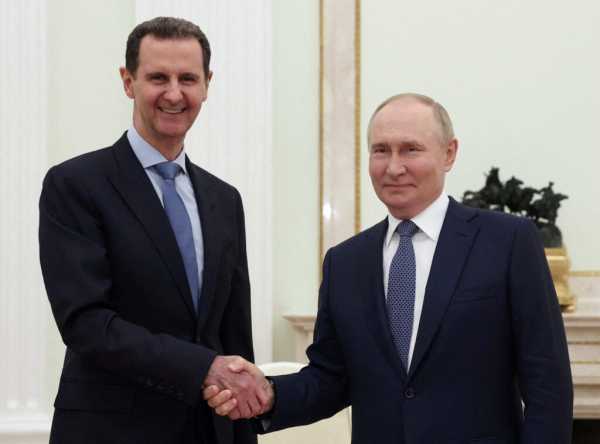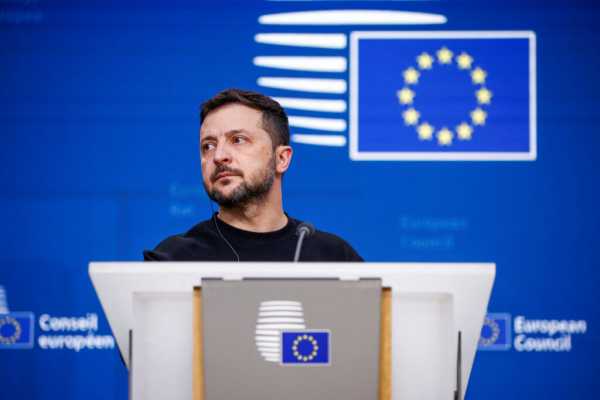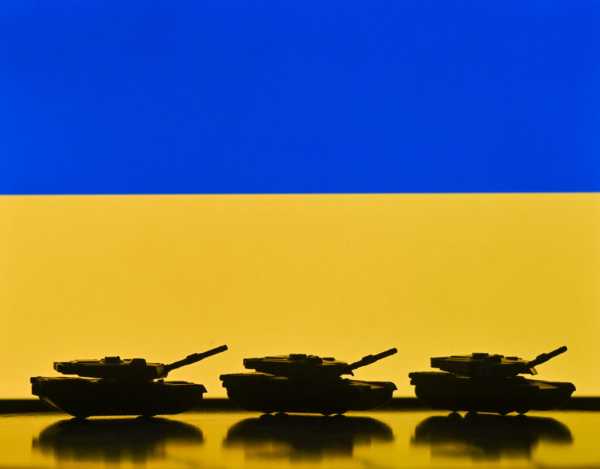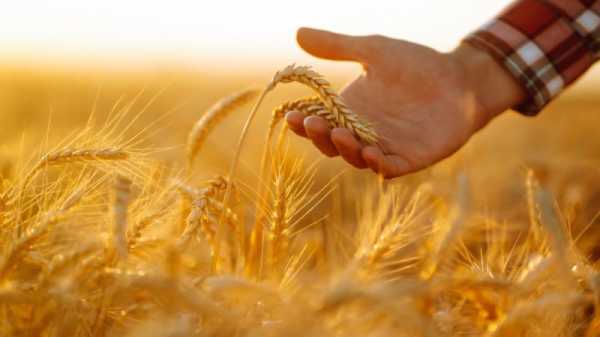
Some 30% of Albanian agricultural exporters went bankrupt in 2023 due to high losses caused by the significant strengthening of the lek against the euro over the last months, further exacerbating a cost crisis already faced by businesses in this area.
In July, EURACTIV reported that wheat farmers were struggling with the price of wheat being less than the production costs and concerns over quality due to bad weather, resulting in unharvested wheat being left in fields and farmers being left out of pocket. They also cited unprecedented issues with the euro-lek exchange rate as a significant challenge to their businesses.
But the situation is now such that it is impacting all kinds of agricultural exporters.
Since the Spring, the strength of the euro against the lek has fallen to historic lows of just over 100 lek for each euro. This means that local producers who pay their bills and staff in lek but get paid for their goods in euros are losing significant income.
“Here, the euro is falling daily, and from the export of goods to the collection of invoices, the losses are very high. Export companies are in a big crisis because of the exchange rate. Almost 30% of agricultural exporters have gone bankrupt, said Lauran Mulliqi, chairman of the Association of Agricultural Products Exporters.
The weakness and volatility of the euro also cause problems for farmers who are selling goods at daily prices but who receive their payments from abroad up to 45 days after the transaction has taken place.
In 2016, one euro was 140 lek, falling to an average of 119 lek in 2022. But on 21 July 2023, the rate fell to just over 100 lek to the euro. At the time of writing, the rate had picked up to 109, but there is little optimism regarding stability.
There are several different hypotheses as to what is behind the euro-lek issue. First, a significant influx of tourists – almost 50% more than last year – has caused demand for Albanian lek to rise.
While the lek is the official currency, the euro is widely used, particularly in big cities and coastal areas. EURACTIV observed this summer that payments are being made in lek and change is being given in euros automatically, and many prices are quoted in euros in tourist areas from north to south.
Central Bank Governor Gent Sejko said during the summer that tourism and “the purchase of properties by non-residents” were behind the influx of extra euros into the economy.
However, analyst and political commentator Neritan Sejamini wrote on Facebook that supply and demand and this influx are not enough to cause the current situation.
“Some strengthening (of the lek) has come from non-formal economic factors or in Albanian: informal or criminal economy.” He said the government and the Bank of Albania can help resolve the issue by lowering lek interest rates, raising the level of obligatory banking reserves in the currency, increasing public spending and lowering taxes.
Typically, Albania’s exchange rate is that of a flexible regime, fluctuating up and down according to supply and demand, as is typical with a free market economy. But the current situation is believed to be artificial.
“Neither the bank nor the government are doing anything because this situation results from a deliberate economic model that could be devastating for the Albanian economy and politics a few years from now,” Sejamini added.
The government has announced some measures to manage the situation, including tax exemptions on profits tax for at least two years for producers that export more than 70% of their products. But this is not enough to fix the situation.
In terms of Albania’s economy, over the last five years, it has seen modest growth of around 3%, 1.5 percentage points less than the potential estimated by the International Monetary Fund. Despite this, the country is undergoing a significant construction boom, and purchase and rental prices are soaring, surpassing more than EUR 5000 per square metre in the centre of Tirana and on the coast.
The contrast between slow economic growth and a boom in property prices, inflation, and a strengthened local currency could be related to the presence of black money in the economy, according to Gjergi Erebara, a journalist with BIRN.
In an op-ed, he wrote there are three possible solutions: a crackdown from law enforcement on the source of income used in construction and a political message that the country isn’t welcoming for illicit funds could help, but it seems unlikely, he writes.
The other solution is to do nothing so the lek reaches a point where those injecting illicit funds lose money when spending their euros due to the exchange rate, but this risks further eroding the country’s ability to produce products, including agricultural goods.
While property, everyday items, and services like entertainment and even fuel can be paid for in euros, an official shift to euro from lek is not on the cards for now. Lek remains king when it comes to paying taxes, fees, utilities, and, of course, salaries of employees who would prefer to be paid in lek while it remains strong.
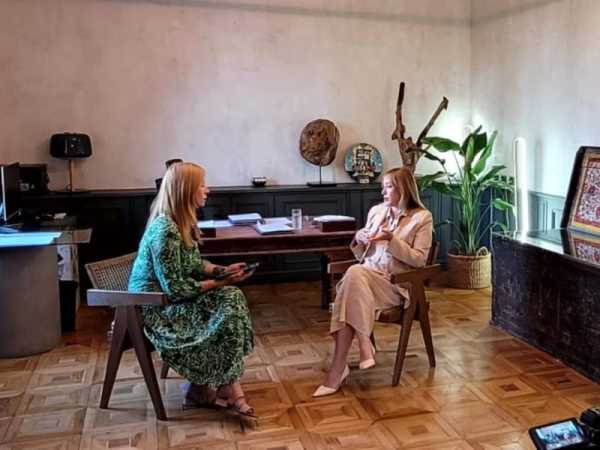
Climate change main challenge for EU hopeful Albania's agriculture sector
It is not just migration and the mammoth task of aligning with the EU legislation that Albania’s agricultural sector has to cope with: According to Agriculture Minister Frida Krifca, climate change is the biggest challenge.
Albania opened negotiations with the European …
Exporters are concerned that the Albanian economy is becoming increasingly uncompetitive for manufacturing and agriculture. At a local level, to cover rising costs, bad weather that impacted crops, and a lack of labour, farmers have had to increase the prices of their goods.
Currently, prices of tomato, cucumber, melon, onion and potato are double last year’s, and farmers say prices are set to remain high.
Farmers have been hit even harder by a lack of funding and subsidies, as currently subsidies are set at some 200,000 lek per hectare per season for no more than two seasons in areas not less than 1 hectare. This excludes many farmers who have less than one hectare of land that would qualify under the scheme.

Albanian agri ministry calls for non-politicisation of EU funds 'interruption'
The European Commission has ‘interrupted’ payments to the Albanian authorities under the IPARD II agricultural scheme pending the conclusion of an investigation by the anti-fraud office, OLAF, while the Agriculture Ministry said it is part of an administrative process and …
In another blow, EU funding through the IPARD subsidised funding project has been suspended due to an ongoing investigation from the anti-corruption office (OLAF), which found suspected irregularities in the disbursement of funds. The investigation is ongoing, and the Albanian Ministry of Agriculture has said there are no irregularities, adding that this is “a completely administrative process that allows the verification of control systems by accredited structures which will take the necessary measures to continue the normal reimbursement from the EU.”
It insists these are normal EU processes and procedures where there is a “need to verify expenses suspected of activity not conforming to the established rules.”
The ministry said it is in continuous cooperation with OLAF and DG AGRI, providing “full transparency as they have been doing since the first day of accreditation”.
(Alice Taylor | EURACTIV.com, Janos Allenback-Amman contributed to reporting)
Read more with EURACTIV

Serbian PM: EU’s ever-changing criteria make expansion by 2030 unrealistic
Source: euractiv.com

